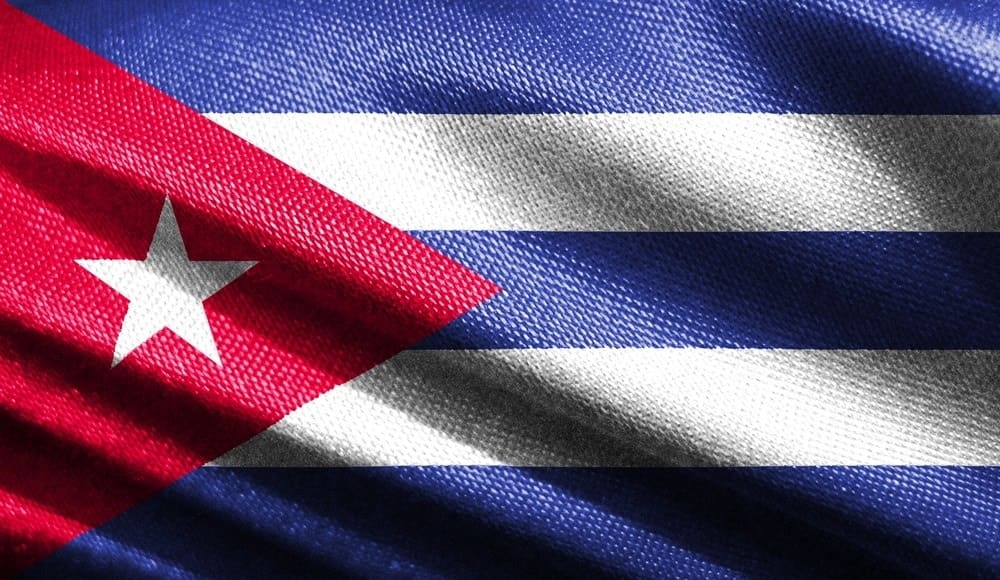The Trump administration’s policies toward Cuba have recently shifted, creating some urgency for U.S. firms that do business with the embattled country and its regional partners. Michael Carter and Drew Marrocco detail what American companies need to do to maintain compliance.
Introduction
The United States recently announced that it would enforce a number of sanctions directed at individuals and companies doing business in or with Cuba. Perhaps most significantly, under Title III of the Cuban Liberty and Democratic Solidarity (Libertad) Act of 1996, known as the Helms-Burton Act[1], as of May 2, 2019, U.S. nationals have the right to file lawsuits in federal court against any individual or entity that “traffics” in property that was confiscated by the Cuban government on or after January 1, 1959. The statute’s broad definition of what it means to “traffic” in confiscated property potentially encompasses a wide range of conduct for which a plaintiff could be entitled to substantial damages.
In addition, Title IV of Helms-Burton allows the U.S. to deny a visa to and exclude from the U.S. non-U.S. persons who traffic in confiscated property, their officers, principals and controlling shareholders and their immediate family members. While this authority has reportedly been applied to only one company, it may increasingly be a legal risk in its own right.
Finally, National Security Advisor John Bolton recently announced that the Treasury Department would make further regulatory changes to, in part, limit remittances to $1,000 per person per quarter and end the use of “U-turn transactions” (§ 515.584), transactions that originate and terminate outside the United States, where neither the originator nor the beneficiary is a person subject to U.S. jurisdiction. These policy changes pose additional risk for companies and financial institutions with connectivity to the U.S., Cuba and the wider Latin America region in three primary ways: regional and global transaction flows, correspondent banking relationships and structuring risk.
Helms-Burton
Title III
Because prior to May 2, 2019 plaintiffs were unable to assert a claim under Title III of Helms-Burton, there is currently no precedent applying or interpreting its scope, including what constitutes “trafficking” in confiscated property. As a result, liability under the Title III private-right-of-action would likely extend to a wide range of actions and actors. The statute defines trafficking as “knowingly and intentionally” selling, transferring, disposing of or engaging “in commercial activity, without the authorization of a U.S. national with a claim to the property. “Knowingly” is broadly defined to include those who either act with actual knowledge that a particular property was confiscated or have reason to know it was confiscated.[2]
One of the first lawsuits under Title III was filed on May 2, 2019 in Miami against Carnival Corporation. In the suit, plaintiff Havana Docks Corp. claims it is the rightful owner of the Havana Cruise Port Terminal, which it “continually owned, possessed and used” from 1917 until 1960.
The suit claims that Carnival “profited” from the Cuban government’s possession of the property by launching sailings from Miami to Cuba starting in 2016. Carnival is seeking dismissal of the claim pursuant to the exemption for “lawful travel” to Cuba. In another case filed in federal court, Exxon Mobil Corp sued Cuba’s state-owned Cuba-Petroleo and CIMEX Corp, seeking $280 million over a refinery, gasoline stations and other assets seized after Fidel Castro’s revolution.
Title IV
Under Title IV of Helms-Burton, the Secretary of State has authority to exclude from the United States and deny visas to any “alien” (i.e., person who is not a citizen or national of the U.S.) who the Secretary of State determines is to traffic in confiscated property to which a U.S. national has a claim. This authority also extends to officers, principals and controlling shareholders in such person and to their spouses, minor children or agents. According to public reports, this authority has only been used once to date: In 1996, the United States banned executives of Sherritt International from entering the United States. However, enforcement under Title IV has reportedly been dormant since then. That may very well change in parallel with the full implementation of Title III.
Blocking Statutes
Cuba has argued that the activation of Helms-Burton is a violation of international law. Other countries, like Canada and Mexico, as well as the European Union, have enacted so-called “blocking statutes,” barring compliance with U.S. sanctions on Cuba. While these statutes in theory provide protections, it remains unclear as a practical matter how they would apply in any given situation.
In Canada, the Foreign Extraterritorial Measures Act allows Canadians to commence actions in Canadian courts to recover their costs associated with defending Title III actions from U.S. plaintiffs and recoupment of any judgment awarded against them in a Title III proceeding. Further, judgments made pursuant to Title III of the Helms-Burton Act will not be recognized or enforced in Canadian courts.
Mexico has enacted similar restrictions on the application of the Helms-Burton Act in its Law to Protect Trade and Investment from Foreign Laws that Contravene International Law. Among other important provisions, the law contains:
- the right to resort to Mexican federal courts in order to recover damages imposed under foreign extraterritorial laws,
- the nonrecognition and nonenforcement of foreign judgments or awards issued under foreign extraterritorial laws requiring payment of damages and
- the right to seek and obtain diplomatic protection from the Mexican government.
The European Union first adopted the EU Blocking Statute in 1996 as a countermeasure to what it considered to be the unlawful effects on “EU operators” of the Helms-Burton Act imposing U.S extraterritorial sanctions against Cuba, Libya and Iran. From the EU perspective, the Helms-Burton Act infringed on the EU’s sovereignty because it interfered with the EU’s legitimate trade with another country. The EU blocking statute prohibits EU operators from complying with a set of specific extraterritorial laws or any decisions, rulings or awards based on those laws. The laws at issue (listed in an Annex to the Statute) include the Helms-Burton Act. As with Canada and Mexico, no court decision made in light of the Helms-Burton Act can be executed in the EU, and EU operators can seek to recover damages arising from the application of Helms-Burton.
Implications for Entities with Ties to Cuba
Until such time as the courts set some parameters over the scope of claims allowed (and the scope of the delineated exemptions), it is likely that plaintiffs will seek to hold liable companies that either directly or indirectly participate in or profit from “trafficking.” Potential defendants worldwide should be prepared to confront a series of novel legal risks. The law’s expansive definition of “trafficking” and the potential for triple damages invite potential plaintiffs to pursue a broad range of claims against a broad range of defendants, even if the defendants do not directly do business in or with Cuba.
Accordingly, any individual or entity that does business in Cuba or with Cuban counterparties, whether directly or indirectly, should be on the lookout for communications from plaintiffs’ counsel or the Department of State regarding potential actions under Titles III and IV. Even absent such communications, they should consider evaluating their potential actions under Titles III and IV, as well as their potential exposure to a lawsuit under the Helms-Burton Act. This could include reviewing whether any business dealings involve confiscated property and, if so, whether the dealings involve activities within the scope of “trafficking.” It may also be prudent to consider developing potential factual and legal defenses, including those related to a lack of requisite knowledge or intent.
Individuals and entities with potential exposure to a lawsuit under the Helms-Burton Act should also consider reviewing whether they have assets that are within the U.S. and therefore could be more easily attached to satisfy any judgment. Similarly, if an individual or entity with exposure to a lawsuit under the Helms-Burton Act has assets in another jurisdiction, they should consider whether a blocking statute might provide some degree of protection from having those assets attached – or a potential “clawback” to recover any assets that are attached elsewhere.
Additional Regulatory Risk Concerns
As stated earlier, in addition to the implementation of Title III, National Security Advisor John Bolton’s announcement limiting remittances to $1,000 per person per quarter and abrogating the use of “U-turn transactions” pose additional risk for companies and financial institutions with connectivity to the U.S., Cuba and the wider Latin America region in three primary ways: regional and global transaction flows, correspondent banking relationships and structuring risk.
With regards to transaction routing, organizations should pay special note to any originator, originating bank, correspondent bank, beneficiary bank, beneficiary or other intermediary party with a U.S. touchpoint, including registered jurisdiction, currency exchanges or covered beneficial owners that could be adjudicated to have a relation to Cuban entities. Because understanding the entity and transactional risk of a single transaction among thousands can be a daunting task, a risk-based approach to monitoring financial flows may be appropriate and should consider value, volume, reasonableness and business purpose in preventing and detecting potential transaction violations.
Similarly, correspondent banking relationships (CBRs) with potential touchpoints to Cuba are worth examining for any financial institution potentially affected by changes to OFAC policy. CBR assessment should include an understanding and acceptance of the respondent bank’s capacity to effectively manage risk and jurisdictional transparency, as well as an understanding of the connectivity of the foreign banks in Cuba – including specific banks based in Canada, Spain, France, the United Kingdom, Lebanon and other regional markets – and how they appropriately (or otherwise) implement transaction monitoring controls. That connectivity risk manifests most often because compliance systems built for local operational jurisdictions may not necessarily capture all of the information and potential risks imposed by U.S. regulations, especially regarding specially designated nationals, other restricted entities, international payments, securities, check clearing, payable through accounts and cash management. Further, the ability of financial institutions to unblock certain transactions will likely be limited as CBRs become de facto restricted and an understanding how companies will deal with incomplete transactions and blocked property movements will be key.
Financial institutions and payment remitters will need to be cognizant of structuring risks as they relate to the new $1,000 per person per quarter limitations. The potential for low-value, high-volume structuring techniques to avoid detection are unlikely to be caught by the usual rules-based transaction monitoring thresholds employed by banks. Again, understanding CBR relationships and any Cuban or Venezuelan touchpoint along the transaction chain is important in properly classifying transactions and entities as “high-risk” for regulatory mitigation.
Coincidentally, OFAC released an updated compliance framework on May 2, 2019 that guides organizations in addressing potential risks, specifically defining management oversight, internal controls, risk assessments, testing and validation and training expectations. Noteworthy with regards to Cuban sanctions: Strong customer screening, transaction monitoring and testing and validation controls will be most vital in avoiding regulatory action.
[1] While this right of action was included in the Helms-Burton Act enacted in 1996, it has never gone live. Rather, the U.S. has continuously suspended its implementation for more than 20 years. On April 17, 2019, however, U.S. Secretary of State Michael Pompeo announced that he would not extend the suspension any further.
[2] The only specified exceptions to the definition of “traffic” relate to providing certain telecommunication services to Cuba, transactions involving publicly traded securities, transactions incident to lawful travel to Cuba or actions taken by private Cuban-resident citizens.












